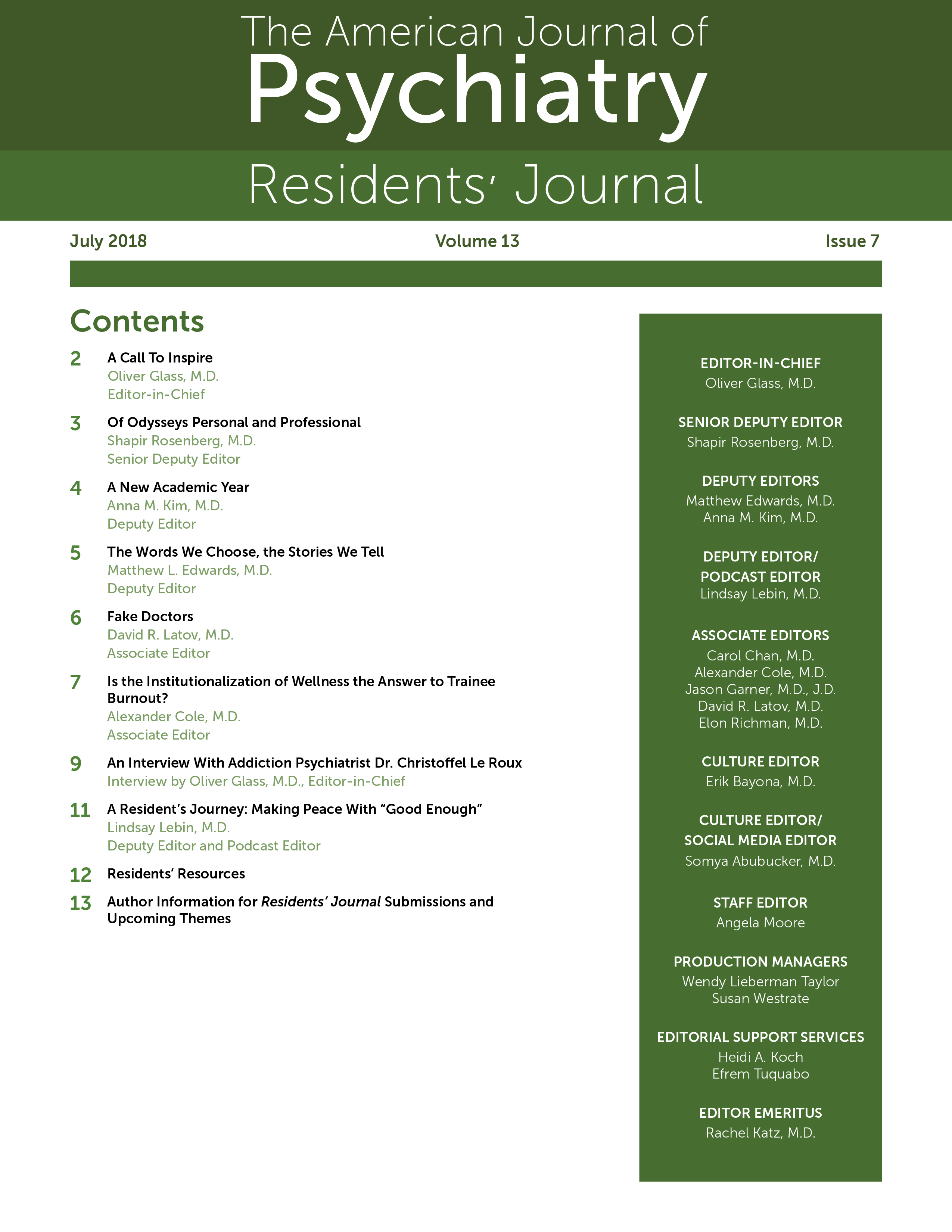"Should you go into psychiatry? Well, do you want to be a fake doctor?"
These were not exactly the words of encouragement I had been hoping for when I called a friend at the beginning of my fourth year of medical school. I felt as though I was standing at the precipice of choosing a career in psychiatry, and I was afraid to step forward. Would I actually be able to help people? Would listening to so many sad stories weigh me down? Would I feel isolated by stigma? Would every person I met from that point onward ask me if I was analyzing him or her? Years later, I find myself reflecting on what life as a "fake doctor" has entailed—and wishing I could sit down with the younger me and alleviate those fears (except for the latter, which has turned out to be true).
I think about "Mr. C," an elderly man with schizophrenia who was admitted to our unit for a psychotic decompensation. He spent his first week disorganized and angry, but over time his psychosis resolved with clozapine, and one day he asked if I wanted to hear some of his poetry. He had written about a woman with whom he had fallen in love years before and ended the poem with, "But why would anybody love me, a schizophrenic?" These words have stayed with me because they highlight one of the most important aspects of our work. As psychiatrists, we are in a unique position to show people like Mr. C that they deserve to be loved, cared for, and respected regardless of their illness and that they do not need to face life’s hardships alone.
I also think about "Ms. S," a woman with obsessive-compulsive disorder (OCD) whose obsessions with symmetry prevented her from hugging her siblings and who was constantly afraid of accidentally injuring herself, since she would then have to injure the other side of her body. Her family did not believe in mental illness and did not permit her to seek treatment, so she started therapy in secret, never having heard of OCD. After a year of therapy, she was able to stop hurting herself, could enjoy hugging her siblings, and was accepted to graduate school.
A neurology resident once remarked that my job was what kids who want to be doctors when they grow up are envisioning. I think she meant that we spend time getting to know our patients, and we help our patients with life’s most important issues, beyond those that laboratory tests and physical exams highlight. I am constantly humbled by the trust people have in me to help them with deeply personal aspects of their lives. Although it can be challenging to help people in this way, throughout it all I have been surrounded and supported by some of the most caring and thoughtful individuals that I have ever met. For those of you who have recently chosen to take this step forward, welcome to the family.
